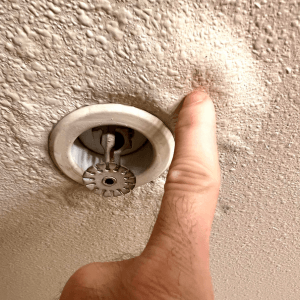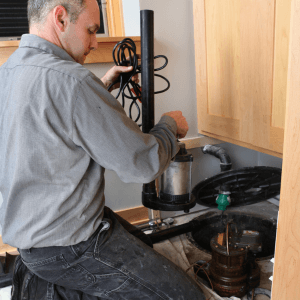Dealing with water damage is stressful enough without adding the frustration of a denied insurance claim. Whether it’s a burst pipe, a sneaky leak, or a full-blown flood, the last thing you want is for your claim to get rejected. At Sapphire Restoration, we’ve seen it all, and we know how important it is to get your claim approved so you can focus on restoring your home.
We’re here to guide you through the process and help you avoid the common pitfalls that lead to claim denials. By following these steps, you’ll be in a much better position to navigate the insurance process successfully.
1. Know Your Policy: What’s Covered and What’s Not
Let’s be honest—most of us don’t sit down with a cup of coffee to read our insurance policies for fun. But when it comes to filing a claim, understanding your policy is critical.
Insurance policies can be tricky, with plenty of fine print outlining what’s covered and what’s excluded. For instance, many policies cover sudden and accidental water damage (like a burst pipe) but might exclude gradual issues, such as a slow leak that’s been ignored.
Take the time to review your policy or ask your insurance agent to clarify your coverage. If you’re not sure, focus on these questions:
- Does my policy cover water damage caused by leaks?
- Are there exclusions for certain types of water damage, like mold or flooding?
- What steps do I need to follow when filing a claim?
Knowing your policy inside and out is the first step to avoiding surprises—and denials.
Texas Dept. of Insurance: When are water damage and mold covered by insurance?
2. Act Fast: Why Timing is Everything in Water Leak Claims

When it comes to water damage, time is your worst enemy. The longer you wait to address the problem, the more damage it can cause—and the more likely your claim will get denied.
Insurance companies expect homeowners to act quickly to minimize damage. If you wait days or weeks to report a leak, they might argue that you didn’t take appropriate action to protect your property.
Here’s what to do as soon as you notice a water leak:
- Shut off the water supply to stop the leak.
- Document the damage (we’ll talk more about this in a minute).
- Notify your insurance company immediately.
Quick action shows your insurer that you’re serious about preventing further damage, which can go a long way in getting your claim approved.
Read more: Drip Today, Disaster Tomorrow—Why Ignoring Water Leaks Could Drain Your Wallet
3. Document Everything: Build a Bulletproof Case
Think of your insurance claim as a story you’re telling, and every good story needs evidence. The more documentation you provide, the stronger your case will be.
Here’s how to build a solid case:
- Take Photos and Videos: Snap pictures of the damage from multiple angles and record videos to show the extent of the issue.
- Keep Receipts: Save invoices for any temporary repairs, cleanup services, or items damaged by the leak.
- Get Professional Evaluations: A report from a water damage restoration company like Sapphire Restoration can provide valuable documentation about the cause and extent of the damage.
Pro tip: Start documenting as soon as you notice the leak. Even if it seems minor at first, having a clear timeline of events can help your claim.
4. Fix It or Forget It: Prevent Further Damage

Insurance companies expect you to take reasonable steps to prevent additional damage. For example, if a pipe bursts, you should shut off the water, mop up what you can, and possibly cover exposed areas to avoid further issues.
But don’t go overboard—your job is to mitigate damage, not make permanent repairs before your claim is approved. For example:
- Do: Place a tarp over a leaking roof to keep rain out.
- Don’t: Replace the entire roof before getting approval.
If you’re unsure about what steps to take, give us a call. At Sapphire Restoration, we’re happy to guide you through the process and ensure you’re protecting your property without jeopardizing your claim.
5. Know What to Say: Communicating With Your Insurance Company
Talking to your insurance company can feel a little intimidating, especially when you’re stressed about the damage to your home. But clear communication is key to a successful claim.
When you contact your insurer:
- Stick to the facts and avoid guessing about the cause of the damage. For example, say, “I noticed water pooling in the basement,” rather than, “It must be a plumbing issue.”
- Be consistent in your statements. Inconsistent or conflicting information can raise red flags.
- Ask for clarification if you don’t understand something. It’s better to ask questions than to assume.
If you’re not comfortable handling the conversation yourself, we can help. We’ve worked with countless homeowners to provide clear documentation and communication that insurance companies trust.
6. Common Mistakes That Lead to Claim Denials

Unfortunately, there are several common missteps that can lead to a denied claim. Here’s what to avoid:
- Missing Deadlines: Most insurance companies have strict timeframes for reporting damage. Don’t wait—file your claim as soon as possible.
- Failing to Document Thoroughly: Without evidence, it’s your word against theirs. Lack of documentation is a top reason for claim denials.
- Neglecting Maintenance: If your insurer determines the damage was caused by neglect (like ignoring a slow leak for months), they might deny your claim.
- Not Following Up: Stay on top of your claim by following up with your insurer regularly. Don’t assume they’re handling everything behind the scenes.
By avoiding these mistakes, you’ll increase your chances of getting your claim approved without unnecessary delays or frustrations.
7. Don’t Go It Alone: How Pros Can Help Secure Your Claim
Water damage insurance claims can be complicated, but you don’t have to navigate the process alone. Hiring a professional—like us!—can make all the difference.
Here’s how we can help:
- Damage Assessment: We’ll provide a detailed report on the cause and extent of the damage, which can strengthen your claim.
- Temporary Repairs: We’ll take steps to prevent further damage while your claim is being processed.
- Documentation: Our team will document the damage thoroughly, giving you the evidence you need to back up your claim.
- Communication: We’ll work with your insurance company to ensure they have all the information they need to process your claim quickly.
Having an experienced restoration company on your side can take the stress out of the process and improve your chances of a successful claim.
Read more: Filing A Fire Damage Insurance Claim? Read This First
Conclusion: Secure Your Claim, Protect Your Home
Water damage is never fun, but navigating the insurance claim process doesn’t have to be a nightmare. By understanding your policy, acting quickly, documenting thoroughly, and avoiding common mistakes, you can significantly increase the likelihood of getting your claim approved.
At Sapphire Restoration, we’re here to help you every step of the way. From assessing the damage to communicating with your insurance company, we’ll make sure your home—and your claim—are in good hands.
Need Help With a Water Leak Insurance Claim? Contact Sapphire Restoration Today!
We’ll handle the tough stuff so you can focus on getting back to normal. Reach out now for expert guidance and professional water damage restoration services.
Keep Reading: Ultimate Guide to Water Extraction: How to Protect Your Home After a Flood

